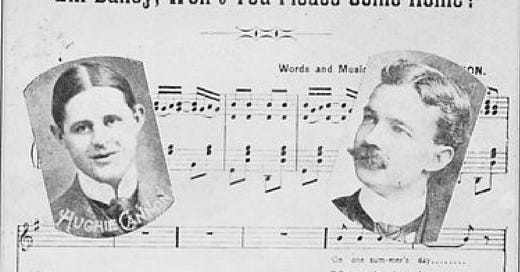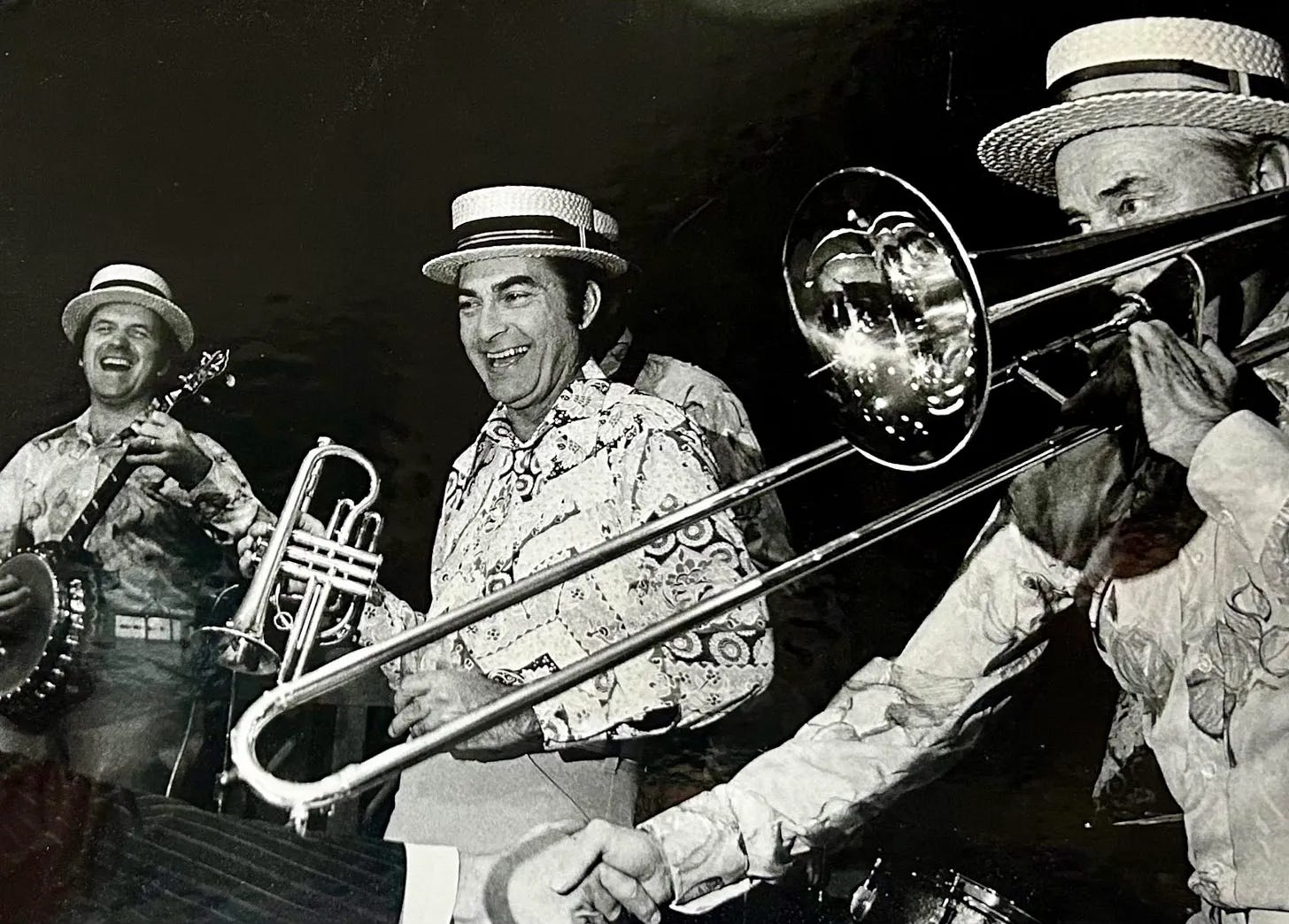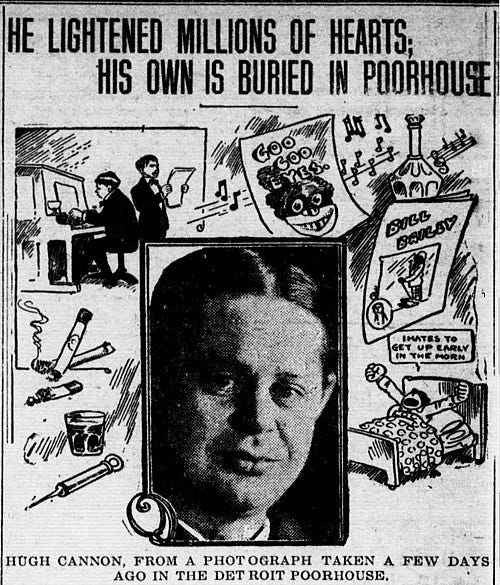
On an evening 23 years ago this week, Chuck Romine and his tenor banjo absolutely rocked the Morehead (Ky.) University campus.
As reported here earlier, the occasion was a packed house at the school’s 400-seat Duncan Recital Hall where The Flood was featured as part of WMKY radio's “Crossroads Live” concert series. Right away, Chuck — whom Charlie Bowen routinely called “a party all to himself” — quickly set the mood for the entire evening, as you can hear by pressing the Play button on the video below:
Featured in this track, “Bill Bailey” was one of Chuck’s signature tunes, which he brought with him when he joined The Flood a year earlier, having played the tune for years in his Dixieland days with the Lucky Jazz Band.
Chuck’s Reseach
Later Chuck explored the song more deeply, expanding his version of it to include the seldom-played introductory verses (On one summer's day, the sun was shining fine. / The lady love of old Bill Bailey was hanging clothes on the line…)
Long after Chuck ended his Flood years, he still regularly returned to the Bowen House to sit in with his old band mates at jam sessions, as illustrated below:
By then, whenever “Bill Bailey” was called for, Chuck started it with that original opening, as in the performance in above video, recorded in a November 2011 jam (at which you’ll notice he switched from banjo to his new interest, a tenor guitar).
The Song’s History
A young man named Hughie Cannon wrote “Bill Bailey” in 1902 while working as a bar pianist at Conrad Deidrich's Saloon in Jackson, Michigan, about 40 miles south of Lansing.
The bar was a tough one. In 1973 Detroit writer James Treloar wrote that at Diedrich’s, “men could get beer for five cents a pint, bar whiskey right out of the barrel for 10 cents, listen to a drifter named Hugh Cannon pound the piano keys, and later on begin eyeing the bawdy house upstairs over the grocery across the street.”
Cannon was something of a legend in Jackson. Sixty years after Hughie’s hey day, reporter Don Durst of the town’s Citizen Patriot newspaper talked to old-timers who remembered the “out of this world” ragtime pianist.
“He would be out on the street singing after the saloon closed,” one source told Durst, “and probably be in jail before morning. During the night, he’d write a song and the music for it. What a gift!”
The Original Bill Bailey
Hughie had a lot of friends and drinking buddies, including one Willard "Bill" Bailey, who also was a jazz musician as well as a Deidrich's Saloon regular.
One night Bailey told a humorous story about the shakiness of his nine-year marriage to wife Sarah, an episode that inspired Cannon to work up a timeless musical caricature of a young woman and her wandering husband.
Cannon quickly realized that this particular song had value; he sold all rights to it to a New York publisher, Howley, Haviland and Co.
Sadly, Hughie didn’t live long enough to enjoy the fame his song achieved. Six years after the tune’s composition, Cannon died of cirrhosis at age 35. Not long before his death, he told a Detroit newspaper that by then he had sold the rights to most of his songs.
In a letter to his mother he grieved for "the songs I once had." Hughie told the same newspaper that while he used drugs, it was alcohol that was the hardest for him to kick. A brief marriage to Emma Dorsin ended in divorce, the final decree handed to her by someone just hours after her troubled husband’s death. Cannon died penniless.
His song lives on, of course. It has been recorded by everyone from Louis Armstrong to Patsy Cline, from Bobby Darin to Pete Fountain, not to mention Wayne Newton, Al Hirt, Brenda Lee, Ella Fitzgerald, Jimmy Durante, Phish, Harry Connick Jr., Lena Horne, Michael Bublé, Della Reese and countless others.
More Chuck? Coming Right Up!
Meanwhile, want more of Chuck Romine’s rollicking banjo? Just check into the Chuck Channel of the free Radio Floodango music streaming service.










